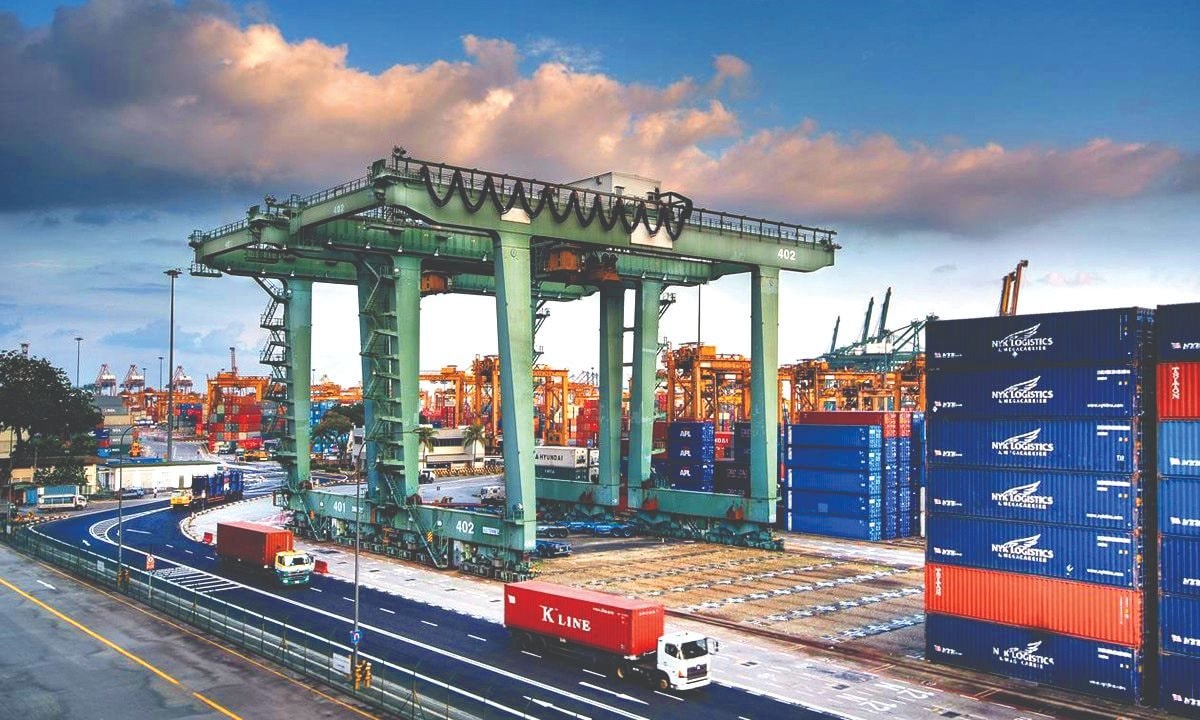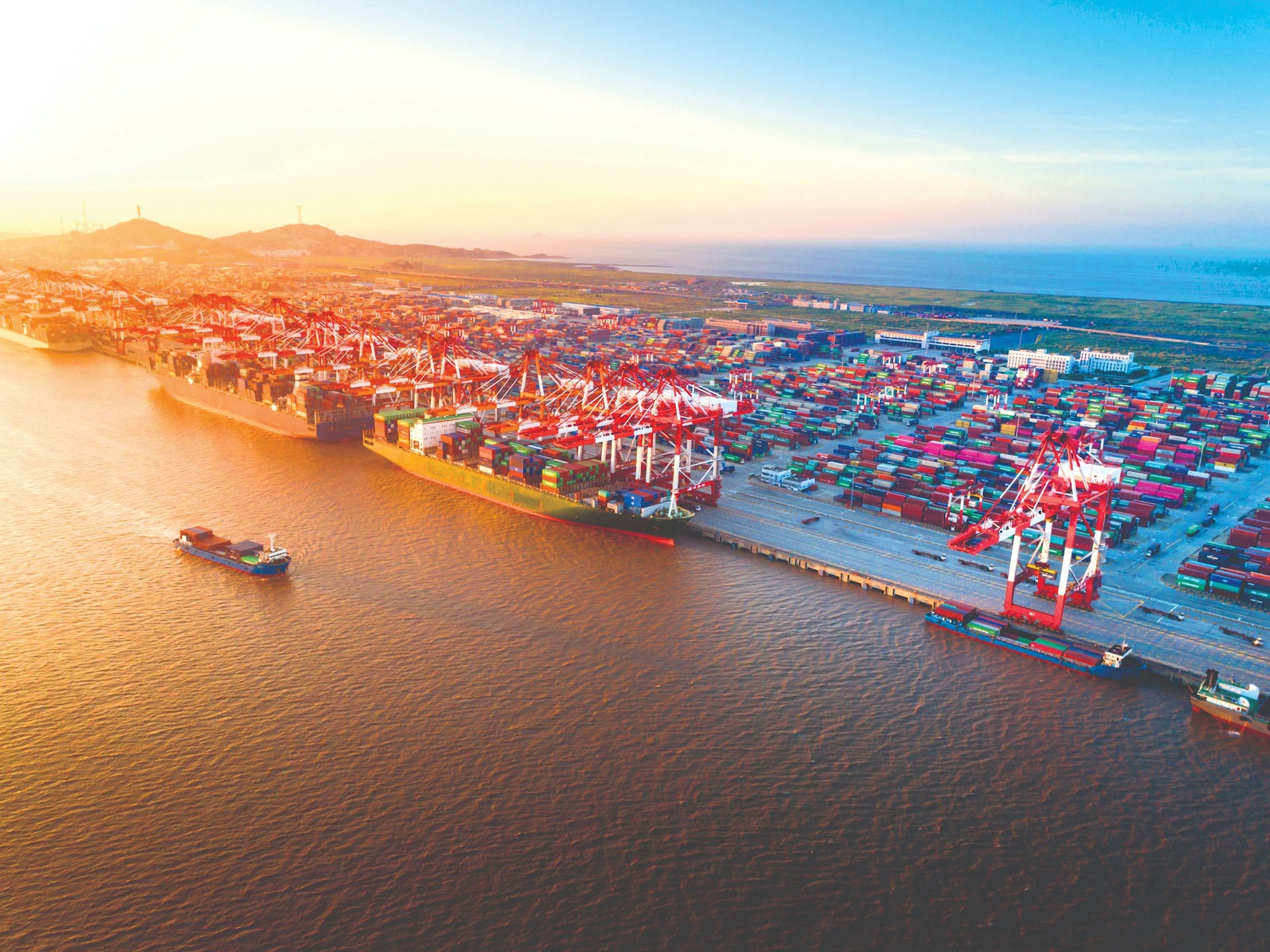Make Vietnam a major logistics hub in the region and the world
English - Ngày đăng : 09:28, 17/07/2023
Vietnamese logistics has not fully exploited its advantages
According to the assessment by the Government in Resolution 163/NQ-CP dated December 16, 2022, in recent years, despite facing many difficulties and challenges, the logistics sector in Vietnam has achieved positive results. Therefore, there is a need to continue improving the legal framework and institutional arrangements for logistics, enhancing the role of the logistics sector in the national economy... In particular, there have been significant contributions to economic activities, primarily in exports, turning export activities into a bright spot with a total import-export turnover of USD 668.5 billion in 2021, an increase of 22.6% compared to 2020, and reaching USD 616.30 billion in the first 10 months of 2022, an increase of 14.06% compared to the same period in 2021.

In addition, the Government, ministries, localities have also paid attention to investing in the development of logistics infrastructure to serve domestic and international goods circulation.
Training activities, technology applications, and other supporting activities for the logistics service industry have also been appropriately addressed. The number of schools, institutes, and institutions involved in logistics training is increasing; the training programs are being upgraded towards specialization and professionalism; many technological solutions are being applied in warehouse management, transportation, and goods to improve the efficiency of logistics services.
The dialogue mechanism between state management agencies on logistics and business, as well as information dissemination activities, to promote and attract investment in logistics services have been strengthened.
The role and voice of logistics associations and logistics service businesses have been strongly asserted. However, according to Resolution 163/ NQ-CP, despite the achievements, logistics activities of Vietnamese enterprises have not fully exploited the geographical-economic advantages and correspond to the potential of each locality; infrastructure serving logistics activities and the connectivity between commercial infrastructure, transportation, and information technology... both domestically and regionally are still inadequate, resulting in many existing inefficiencies and shortcomings in logistics operations.
US economists believe that logistics is the efficient planning, organization, implementation, and control of the movement, storage, services, and related information from the initial point of origin to the final destination in order to meet customer requirements... Article 233 of Vietnam’s Commercial Law in 2005 also states that “Logistics services are commercial activities in which traders organize and perform one or more stages, including receiving goods, transportation, storage, warehousing, customs procedures, other documentation procedures, customer consulting, packaging, labeling, delivery, or other related services as agreed with customers...”.
The inevitable trend of the present era is the globalization of the world economy. The dynamic development of the global market has led to a significant increase in trade between countries and regions worldwide, naturally resulting in new demands for transportation, warehousing, and related services... Therefore, the role of logistics is becoming increasingly important. Logistics is an effective tool for linking international economic activities and ensuring high efficiency in business operations.
At the Vietnam Logistics Forum 2022 held on November 26, 2022, Minister of Industry and Trade Nguyen Hong Dien stated that the most pressing issues in our logistics services today are the high logistics costs and low competitiveness; the linkages between manufacturing, import-export, and logistics services are not tight and effective. Particularly, the shortage of high-quality human resources and the deficiencies and lack of connectivity in infrastructure are major bottlenecks restraining the development of the logistics service industry.”

To make Vietnam a significant logistics hub in the region and the world
The Ministries of Industry and Trade, Transport, Finance, and related agencies need to closely monitor the international and regional situation, promptly analyze and assess the impacts on our economy. Based on that, they should proactively develop scenarios and response plans, provide guidance and oversee logistics operations to effectively serve domestic production, goods circulation, and import-export activities. The responsible ministries, sectors, and localities should grasp the situation, promptly detect and address issues that may negatively affect the economy and society within their scope of state management in logistics activities.
The objective set in Resolution 163/NQ-CP is to develop Vietnam’s logistics services into a high-value-added sector, integrating logistics services with the development of production, domestic trade, import- export, transportation infrastructure, and information technology. The focus is on developing the logistics service market, enhancing the competitiveness of logistics service providers, maximizing the advantages of geographical location, and strengthening connectivity to establish Vietnam as an important logistics hub in the region and the world.
